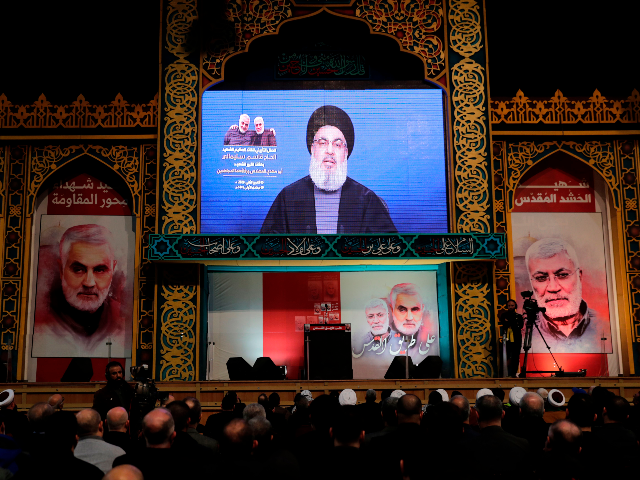The Iranian government announced on Sunday that its systematic violations of former President Barack Obama’s nuclear deal, formally known as the Joint Comprehensive Plan of Action (JCPOA), will escalate to their logical conclusion with the removal of all limits on uranium enrichment.
“By taking the fifth step in reducing its commitment, the Islamic Republic of Iran eliminates the last key operational restriction it faced under the JCPOA, which is the limitation imposed on the number of centrifuges,” said a statement from Tehran.
Iran discarded the nuclear deal in a series of “steps” intended to pressure the Europeans into making massive financial concessions to protect Tehran from sanctions imposed by U.S. President Donald Trump after he withdrew from the JCPOA in May 2018.
As the Iranian statement indicated, the latest step was scheduled in advance, although almost every Western media report mentioned the elimination of Islamic Revolutionary Guard Corps (IRGC) Gen. Qasem Soleimani by a U.S. airstrike last week when reporting the latest JCPOA violation.
Iran’s Fars News Agency (FNA) reported on Monday that Iran is still lobbing threats at the Europeans, including final measures that could include blocking all inspections of its nuclear facilities. According to FNA:
Head of the Atomic Energy Agency of Iran (AEOI) Ali Akbar Salehi warned the European signatories to the landmark 2015 nuclear deal that security repercussions of activating the “trigger mechanism” will serve nobody’s interests.
In a press conference on the sidelines of a ceremony last Monday, held to launch the second circuit of Iran’s Arak heavy water reactor, which is located near the central Iranian city of Khondab, Salehi said that if the European signatories to the JCPOA, activate the “trigger mechanism” to mount pressure on Iran, it will mean the demise of the deal.
Under the nuclear deal, signed between Iran and the P5+1 countries (the United States, Britain, France, China, Russia and Germany), Tehran agreed to remove the core of the Arak reactor and fill it with concrete provided that the other parties to the accord redesign it for the production of medical isotopes, which they did not.
The reactor consists of two circuits, with the first one tasked with removing heat from the heart of the reactor, and the secondary circuit responsible for transferring heat from the first circuit to cooling towers and finally to the outside environment.
“Europe wants the JCPOA to survive. The JCPOA is of security importance to them, but whether this demand is commensurate with their ability (to resist US pressures) is a different issue. The ability of Europe depends on its resistance against the United States, but unfortunately they have proven that the 28 (member) states (of the European Union) are less resistant and independent than a single (US) state like California,” Iran’s nuclear chief said.
Iranian Foreign Minister Mohammad Javad Zarif claimed all of Iran’s actions have been “within the JCPOA” – which, if true, would thoroughly vindicate President Trump’s criticisms of the agreement – and offered to reverse the violations “upon EFFECTIVE implementation of reciprocal observations,” meaning the Europeans must obey Tehran’s demands and put a huge amount of money on the table. Iran would not consider any Euro concessions “effective” unless they completely erased the $200 billion in damage Trump’s sanctions have inflicted.
The Europeans have put up with a great deal of humiliation from Iran to keep the nuclear deal alive, but a line may finally have been crossed. A spokesman for British Prime Minister Boris Johnson said on Monday that Iran’s latest announcement is “clearly extremely concerning.”
“We have always said the nuclear deal is a reciprocal deal, and in light of Iran’s announcement we are urgently speaking to partners about next steps,” he said.
British Foreign Secretary Dominic Raab sounded an even more dour note, insisting that “Tehran cannot continue its nefarious activities” in the Middle East – such as those Gen. Qasem Soleimani was engaged in at the time of his death – and expect to remain a partner in the JCPOA.
“It was General Soleimani’s job description to engage proxies and militias … to attack Western countries that were legitimately there and in those circumstances the right of self-defense clearly applies,” Raab said of the U.S. airstrike that killed Soleimani.
Raab referred to the late Iranian general a “regional menace” and called on both the U.S. and Iran to de-escalate now that Soleimani is dead.
German Foreign Minister Heiko Maas grumbled on Monday that Iran’s violations are making it more difficult to keep the JCPOA alive.
“What Iran has announced is no longer in accordance with the agreement, so we will sit down today with France and Britain to decide on that – how we respond to that this week. We can’t put up with that without reacting,” Maas said, contradicting Iranian Foreign Minister Zarif’s assertions that Iran’s provocative actions are allowed under the nuclear deal.
“This could be the first step to the end of this agreement, which would be a big loss so we will weigh this up very, very responsibly now,” he said.
Josep Borrell, head of foreign policy for the European Union (EU), spoke with Zarif over the weekend and invited him to visit EU headquarters in Brussels for discussions.
“The High Representative confirmed his resolve to continue to fully play his role as coordinator and keep the unity of the remaining participants in support of the agreement and its full implementation by all parties,” said Borrell.
France, Germany, and the UK issued a joint statement on Sunday expressing deep concern about “the negative role that Iran has played in the region, in particular with the Iranian Revolutionary Guard and the al-Quds unit under the command of General Soleimani.” The statement urged Iran to refrain from further violations of the JCPOA.

COMMENTS
Please let us know if you're having issues with commenting.